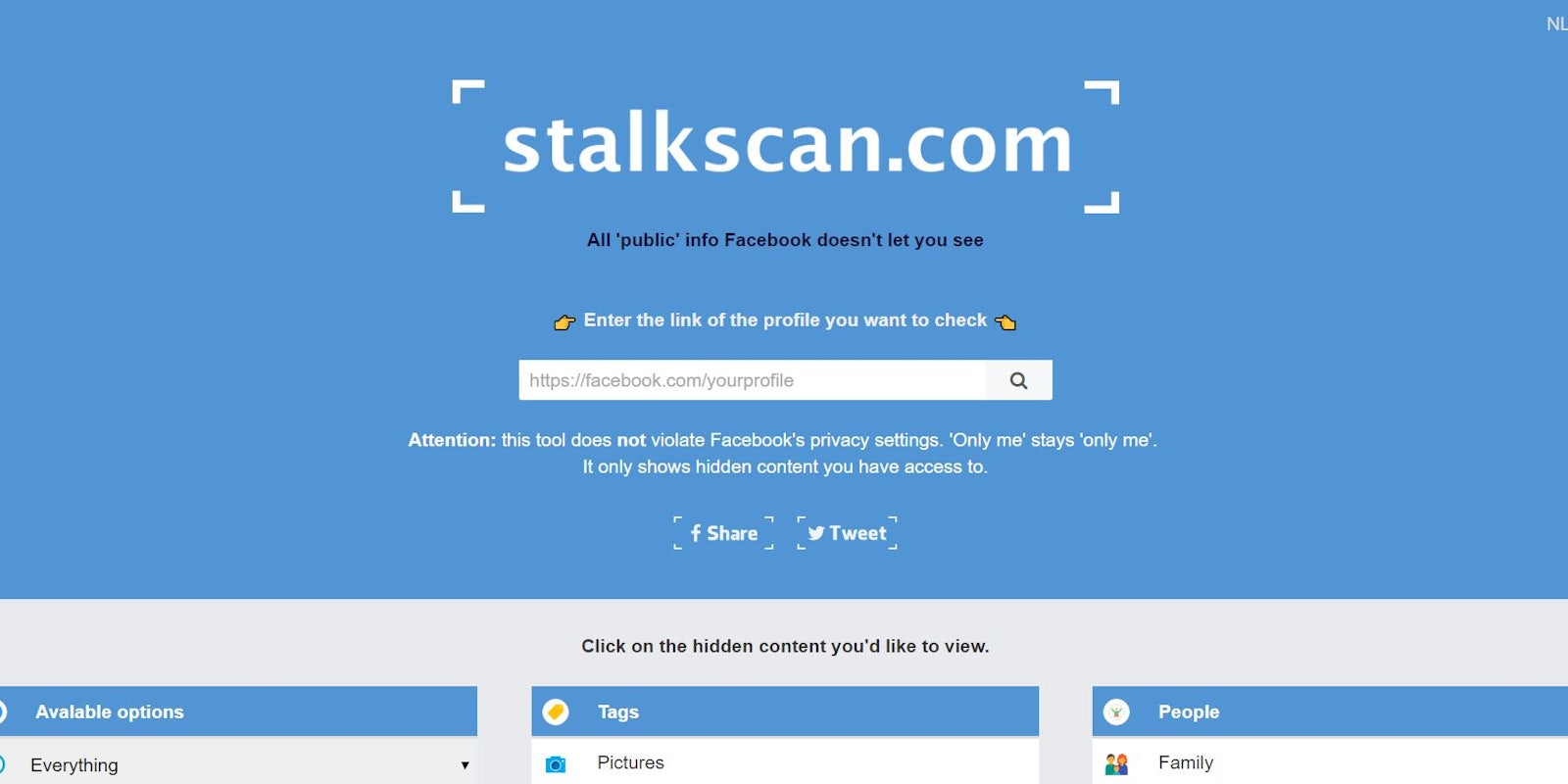A Belgian ethical hacker created an online tool that helps you find all the information available on someone’s public Facebook account—even the things the social media giant hides away.
What puts the Stalkscan application in “creepy” territory (aside from its name), is that it will show you details that are otherwise difficult to find or not explicitly presented by Facebook, like pictures or posts someone liked, or places they have visited.
To use the tool, just load the Stalkscan website, copy the URL of the profile you want more info on, and paste it into the search bar. The site will then load all the public information available on someone’s Facebook page, and give you well-defined content categories to choose from. All told, that means posts they liked, photos they commented on, friends of friends, and places they’ve been to.
You can even search your own profile to see if those privacy settings are doing their job, but you’ll either need a second Facebook account or ask someone who isn’t your friend to look you up.
That’s because Stalkscan gets all of its information straight from Facebook searches. If you search “Photo liked by [account name]” on Facebook, you will get the exact same information Stalkscan gives you in its ‘Liked-Pictures’ section, which will simply redirect you to a Facebook search within your own logged-in profile.
The app makes sure to point that out, too, with an “Attention: this tool does not violate Facebook’s privacy settings” disclaimer. And there is really no reason it would. Stalkscan simply aggregates all of the information you would be able to find on someone based on your relationship to them and their privacy settings.
What Stalkscan does show you is just how much data Facebook collects and makes available for people to see. It might even make you consider taking a closer look at those privacy settings.
H/T Lifehacker
